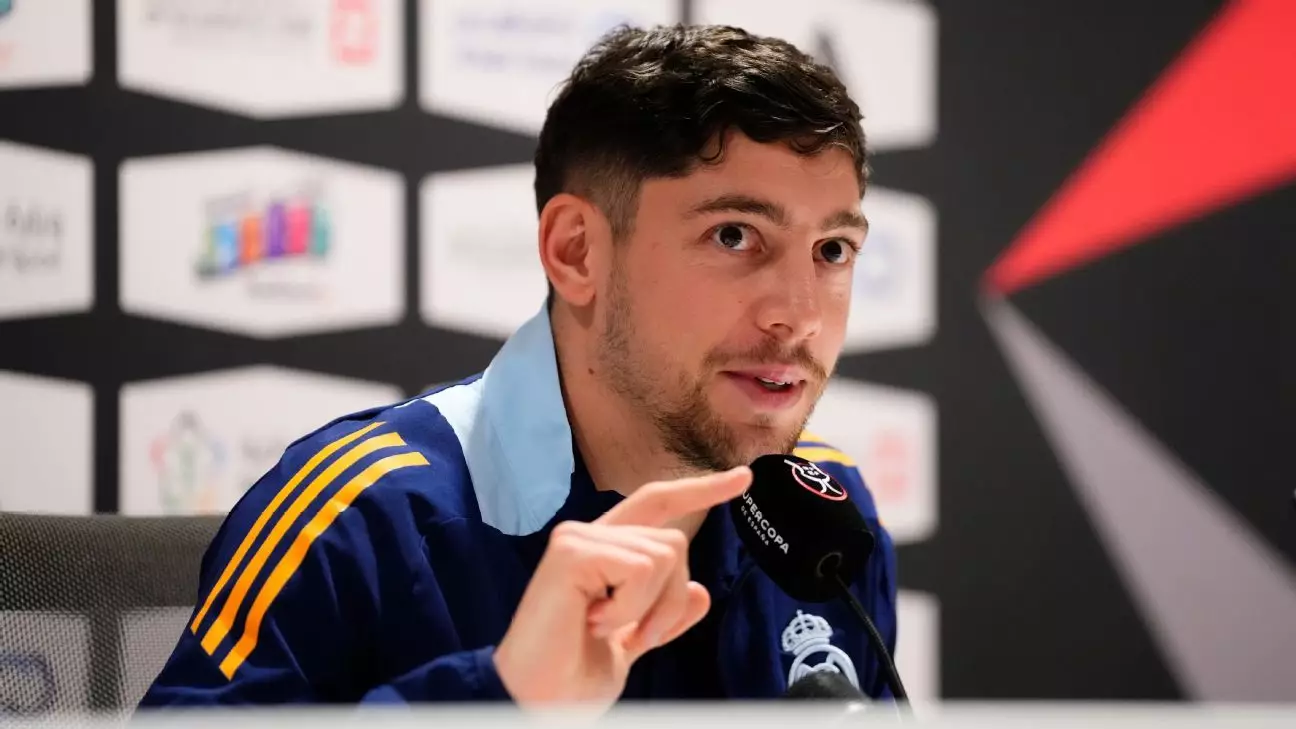As the anticipation mounts for the upcoming Supercopa final between Real Madrid and Barcelona, Federico Valverde, the Uruguayan midfielder for Madrid, shared his thoughts on a matchup that has historically captivated football fans worldwide. With a clash imbued with rivalry, expectations are heightened, especially for star players like Kylian Mbappé, who has recently joined Madrid and already become a pivotal figure in the squad. Valverde’s remarks, particularly concerning MBappé’s earlier struggles against Barcelona, open a dialogue on the nuances of rivalry, teamwork, and adapting to high-stakes matchups.
Reflecting on his own experiences and those of his teammate, Valverde recognized the complexities of facing Barcelona’s defensive tactics. He specifically pointed out that while Mbappé faced challenges with being caught offside in their last encounter, it is not solely on the player’s shoulders to navigate such strategies. Valverde emphasized that attacking against a high defensive line requires a united front; it is the collective effort of the entire team that will ultimately decide the effectiveness of their approach. Rather than placing blame or responsibility on Mbappé alone, Valverde’s insight sheds light on the broader dynamics of team strategy in professional football.
In acknowledging Mbappé’s accomplishments, including a World Cup victory and consistent performances in France, Valverde took a respectful stance. He articulately conveyed a sense of humility, opting not to assert his expertise over a player who has proven himself time and again on the international stage. This decorum is commendable, especially given the intense pressure that both players are under as they prepare for the Supercopa. Such respect within the ranks speaks volumes about the culture of Real Madrid and the camaraderie that Valverde aims to foster as they head into this significant match.
The discussion surrounding the potential inclusion of Dani Olmo in Barcelona’s lineup reveals the unforeseen complexities that footballers encounter off the pitch. Valverde carefully refrained from passing judgment on Olmo’s registration status, articulating empathy for a player caught in a web of administrative hurdles. His remarks underline the human side of football, reminding fans that athletes are often battling their own challenges outside the confines of the game, which can affect their morale and performance. Valverde’s acknowledgment of such difficulties promotes the notion that football is not just a sport but is intertwined with personal passion and struggles.
Pause was brought to the forefront when Valverde addressed the on-field tensions witnessed during the semifinal against Mallorca. His remarks on player emotions during and after intense matches encapsulate the unpredictable nature of football. The raw emotions that players express—whether it’s frustration, anger, or jubilation—reflect the immense pressure they endure in competitive sports. Valverde’s understanding of this dynamic reveals a maturity that transcends basic sports commentary and taps into the very essence of what makes football thrilling: the unpredictability of human emotions and relationships on the pitch.
As Real Madrid approaches the Supercopa final against Barcelona, the insights shared by Federico Valverde provide not only a glimpse into strategic considerations but also emphasize the importance of respect, teamwork, and the emotional depth of football. With both teams poised to showcase their prowess, the battle promises to be as much about skill as it is about the spirit of the game.

